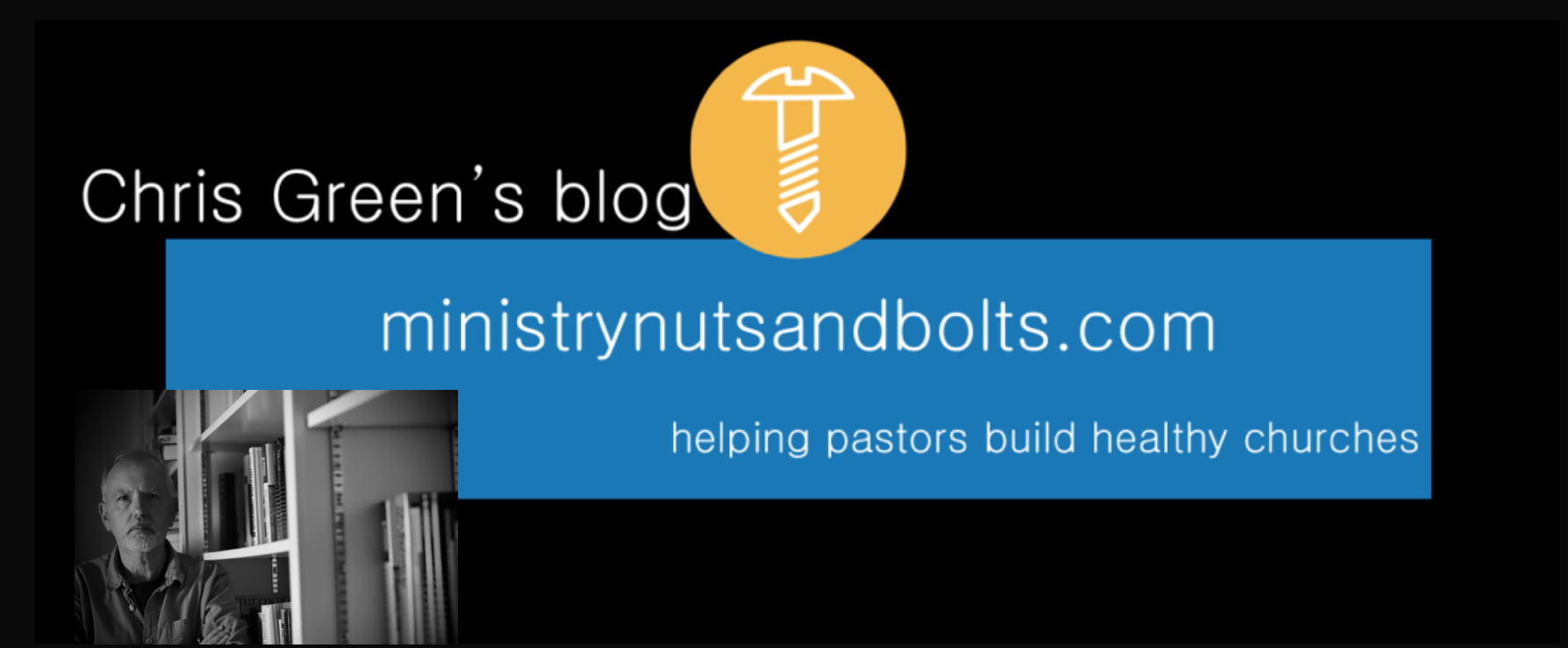 Like every pastor, my diary is filled with meetings – individuals, groups, a few non-Christians and more Christians, those who are sailing along and those for whom belief is a battle. In a small church, you’re often the only one who can meet people at that level, and in a larger church there are more people to meet.
Like every pastor, my diary is filled with meetings – individuals, groups, a few non-Christians and more Christians, those who are sailing along and those for whom belief is a battle. In a small church, you’re often the only one who can meet people at that level, and in a larger church there are more people to meet.
Pastors go to meetings.
And I’ve learned the hard way, that there is one critical meeting that I simply must have. It needs to go in the diary, and resist all pressures to drop out.
It’s my weekly meeting with me. If that sounds self-indulgent, bear with me.
I’ve known about this for decades, because any half-way decent leadership book tells you to do it. Perhaps most forcefully, David Allen describes it in Getting Things Done; most practically, Michael Hyatt describes it (and assists it) in his Full Focus Planner. Nothing in what follows is original to me, and if you know a better way to do this, pile in.
So how do you do one, and why is it so important?
Second question first; it’s important, because to make progress on your bigger plans, you need to monitor your smaller steps. If you aim to disciple five younger Christians this quarter, what are you currently doing to achieve that? If you’re writing a paper for your elders, what progress did you make this week, and what will you do next week? Where do you need to play some catch-up? Is diary pressure squeezing your quiet times?
As Peter Drucker repeatedly said, the effective person knows where their times goes. And knowing that can only properly be done by reading your diary backwards, as well as forwards.
So, here’s what I do.
I needed to discover a regular time that I can pretty much guarantee will be the most useful time of the week to do it. For me, that’s late Thursday afternoon. Friday is my day off, so it’s a good time to look back. And it’s a slower, more reflective part of the day – the creative juices have stopped flowing, and most of the high-impact tasks of the week have been tackled. And because I know the rhythm of my week, I can predict that will usually work, and it goes in the diary as a recurring event. 4pm on Thursday is the routine time for my weekly review. It takes about half an hour.
First, I pray. This is a pointless task if it’s done just as a human desk-clearing exercise. We are accountable steward of time, and I need to review, reflect and plan with God’s perspectives and with the right humility. And that’s true of the bigger planning cycle, and it feeds off the necessity of quiet times too.
If you were squirming about that ‘most important meeting’ bit of the headline, and saying ‘what about worship, what about prayer’, or – just as probably – ‘what about my marriage, what about my kids’ then hear this carefully.
If you were squirming about that ‘most important meeting’ bit of the headline, and saying ‘what about worship, what about prayer’, or – just as probably – ‘what about my marriage, what about my kids’ then hear this carefully: those are too precious to be called ‘meetings’ . They’re our breath and food, our life and love. BUT the pressure of a busy ministry squeezes those out all to often, and we neglect them. Identifying this as ‘my most important meeting’ means that I can monitor how I’m doing on ‘my most essential relationships.’
Second I look back on the week. I would have had certain big tasks I needed or wanted to get done. Some would have been over and done with (sermon prepped and preached), some would have been milestones on a bigger project, but – how far did I get? What else happened, whether good, bad, indifferent, time-wasting, unexpectedly delightful? Have I thanked God, prayed for, celebrated that week that’s gone? What did I read that really struck me? What were the lessons I learned that I must capture?
I’ll look at the list of projects or tasks that I need to keep an eye on (I use the free version of Asana for that, rather than paper). Some of them are what I need to do, others are what someone else is working on, or I haven’t heard back from. I’m checking the email inbox, with the target of inbox zero (that’s a daily task if I can, but weekly is a must), any papers or letters that have come – those sorts of things. David Allen calls it getting clear and current.
This is one reason I’ve gone back to using a paper planner, because I find it easier to take quick notes in a meeting, and then flip through the planner at the end of the week to check I haven’t missed anything. Taking notes on a phone feels distracting, scraps of paper get lost, and I don’t rely on my memory any more!
Only then, third, am I looking ahead. Again, the helpfulness of a paper diary (I’ve found) is that I ‘own’ the week coming up. I only write in the week ahead, but as I do so I’m accounting for each of those events, and checking off that they’re still important. I’ve agreed that they’re in my schedule.
Alongside that, I’m checking the next action steps of those projects or goals. Breaking a demanding task into easily achieved next-steps is the obvious but important key here. I’ll throw some items ahead: stuff to remember when I meet a particular person, don’t forget to take the data projector on Tuesday – you know the kind of thing. But, as always, the key is to get it out of your head, off your “I mustn’t forget’ worry list, and into the diary.
And I’m watching margins, so I don’t over-plan, watching energy levels, so I work on the right thing at the right time (sermon prep in the late afternoon is pointless for me), having an eye on time off, away, fun, exercise, standing back to look at the bigger picture and making sure life is balanced and I’m as ready as I can be for the unexpected. Because all planning is in pencil, isn’t it?
Let me repeat, at the risk of being named and shamed as a fan-boy, that the best tool I have ever come across for this is Michael Hyatt’s Full Focus Planner. It’s the only one I know which has put the weekly review in the diary, each week, and which takes you through that process each time.
When I started out in ministry, running full-pelt, I’m pretty sure I didn’t do this because I thought it was a luxury. Fill the diary, keep your eyes on the road ahead, drive fast and hard.
But it’s the old effectiveness/busyness issue, isn’t it? And more than that, I’ve learnt that David Allen is right. By knowing that I’m clear and current, my brain feels confident enough to be creative. I don’t have fifty million ‘don’t forget to’s’ buzzing round my brain, and so I find I can focus on the one task at hand much more easily and fruitfully.
So am I stress-free, organised, never-forgetting, super-productive? Hah! As if! You’re dealing with a finite, fallen person here. But that’s why I need the best help I can get, to get just that bit better.
That’s why for me, the weekly review has moved from a luxury to a necessity.
What else do you do? What other tools have you found? Pile in!





Thanks very much Chris, this is something I battle to do each week and know it’s important. I have 2 questions:
1. How do you make sure it doesn’t get squeezed out by other important/urgent things that you need to get done before your day off?
2. If I try and get through all my email in the weekly review, the time vanishes and I don’t get to ‘review’, how do you avoid getting distracted by email if you check this during your review?
My answer has been to just not to try and empty my inbox as part of the review, but wondered if you have any other advice as I know people talk about “getting current” during the review which would mean being up to date on email…
Thanks again,
Nick